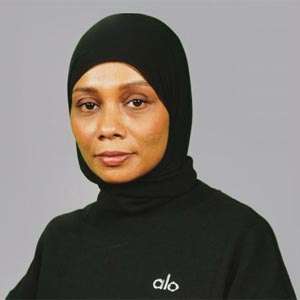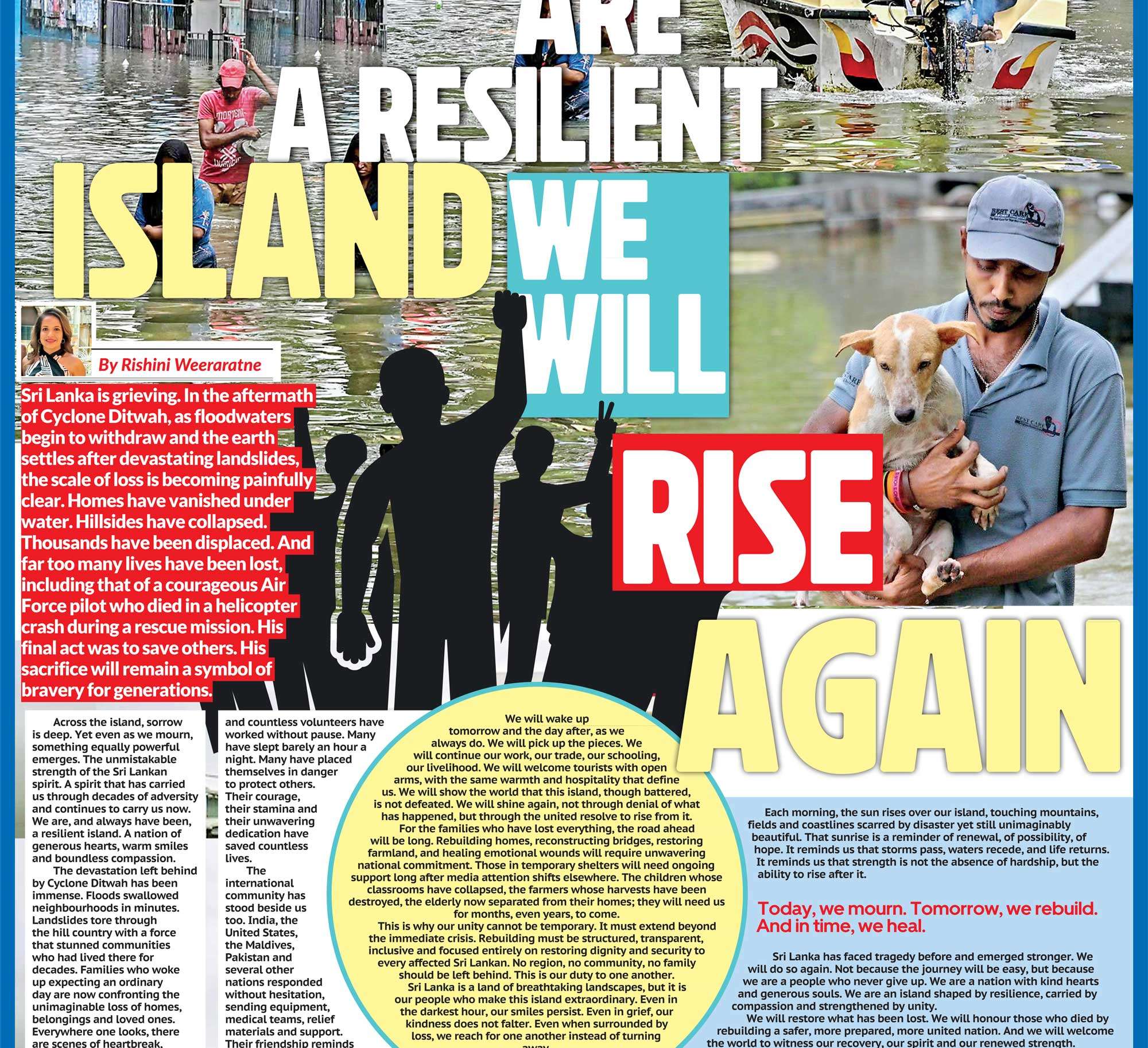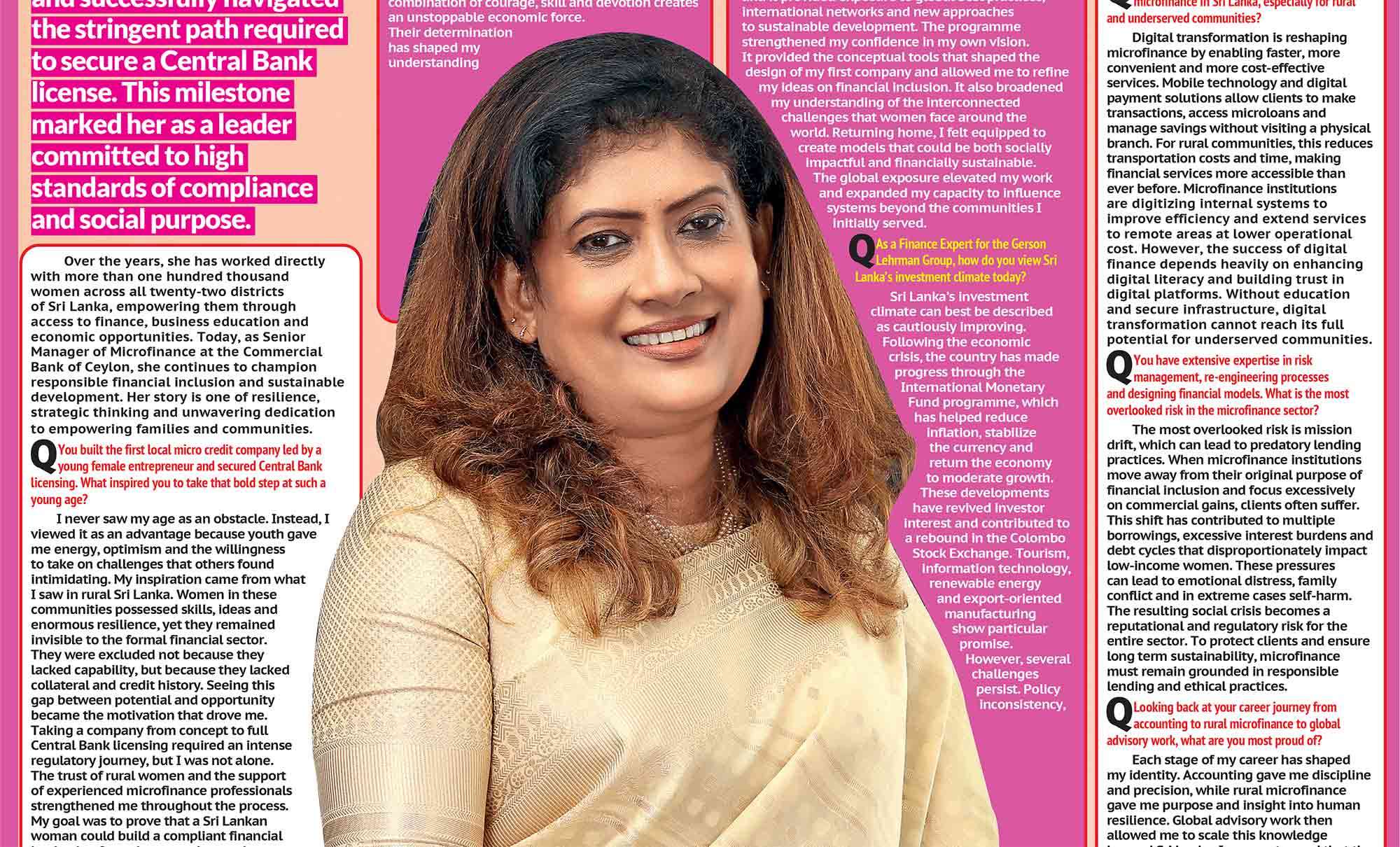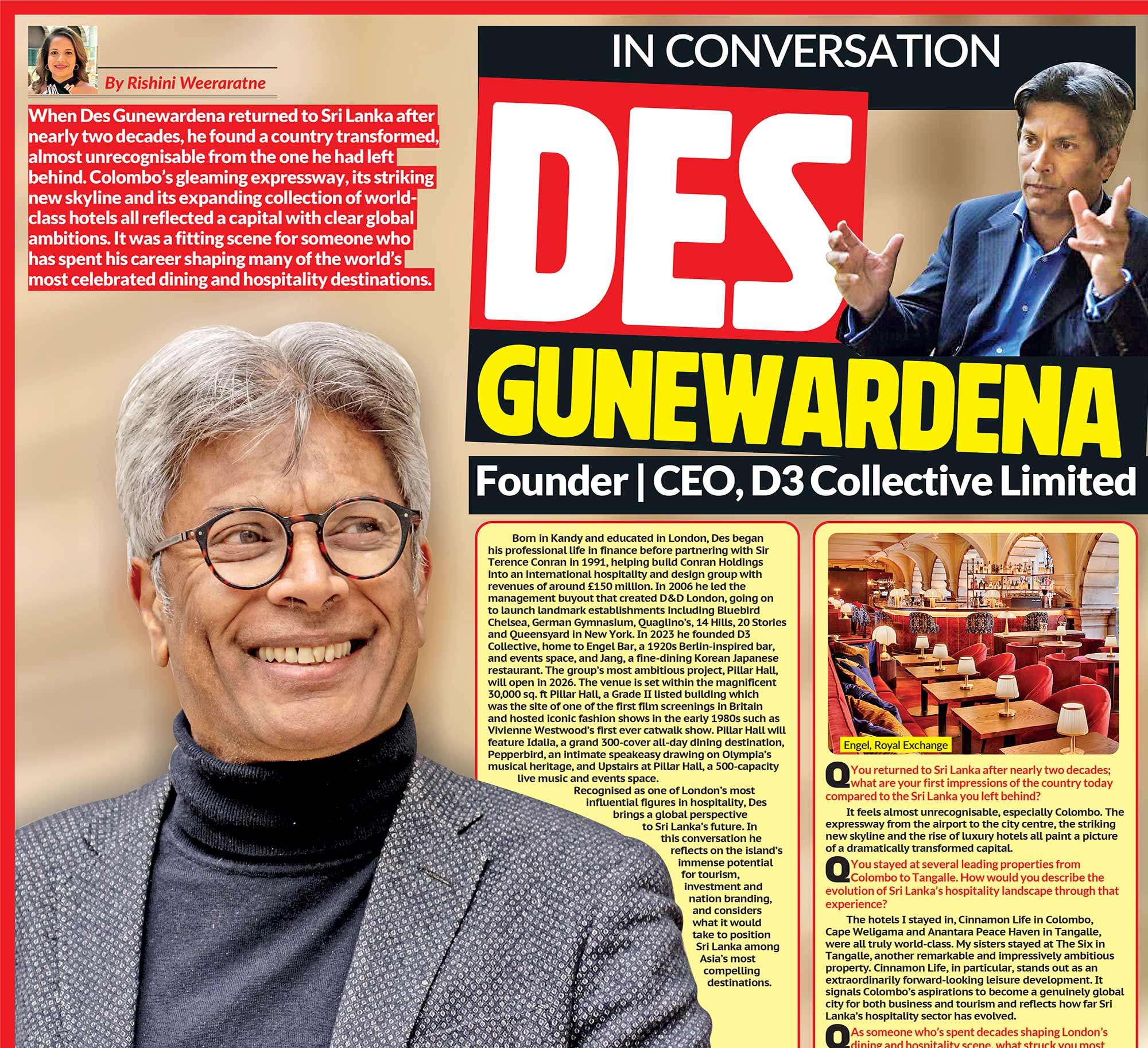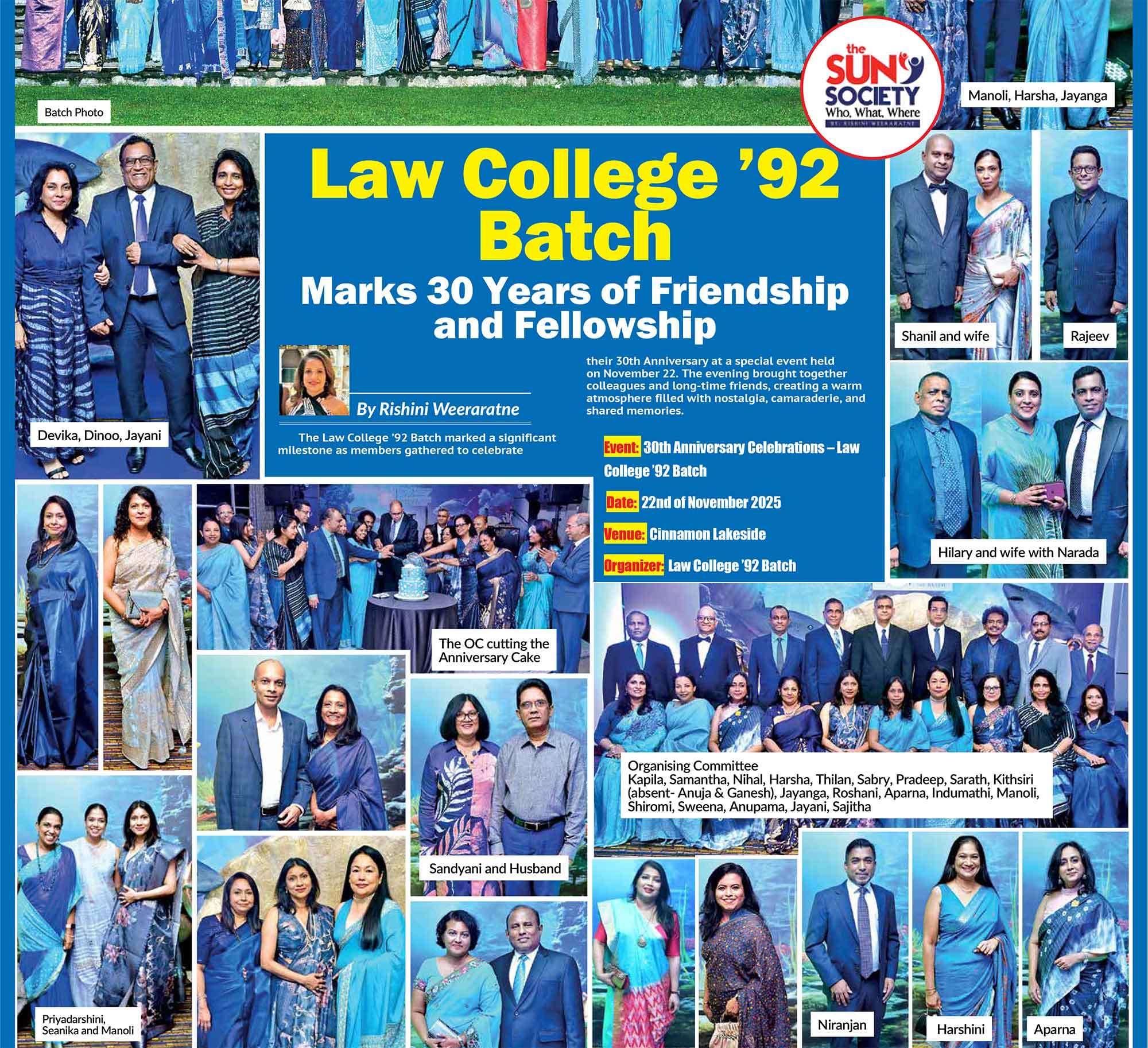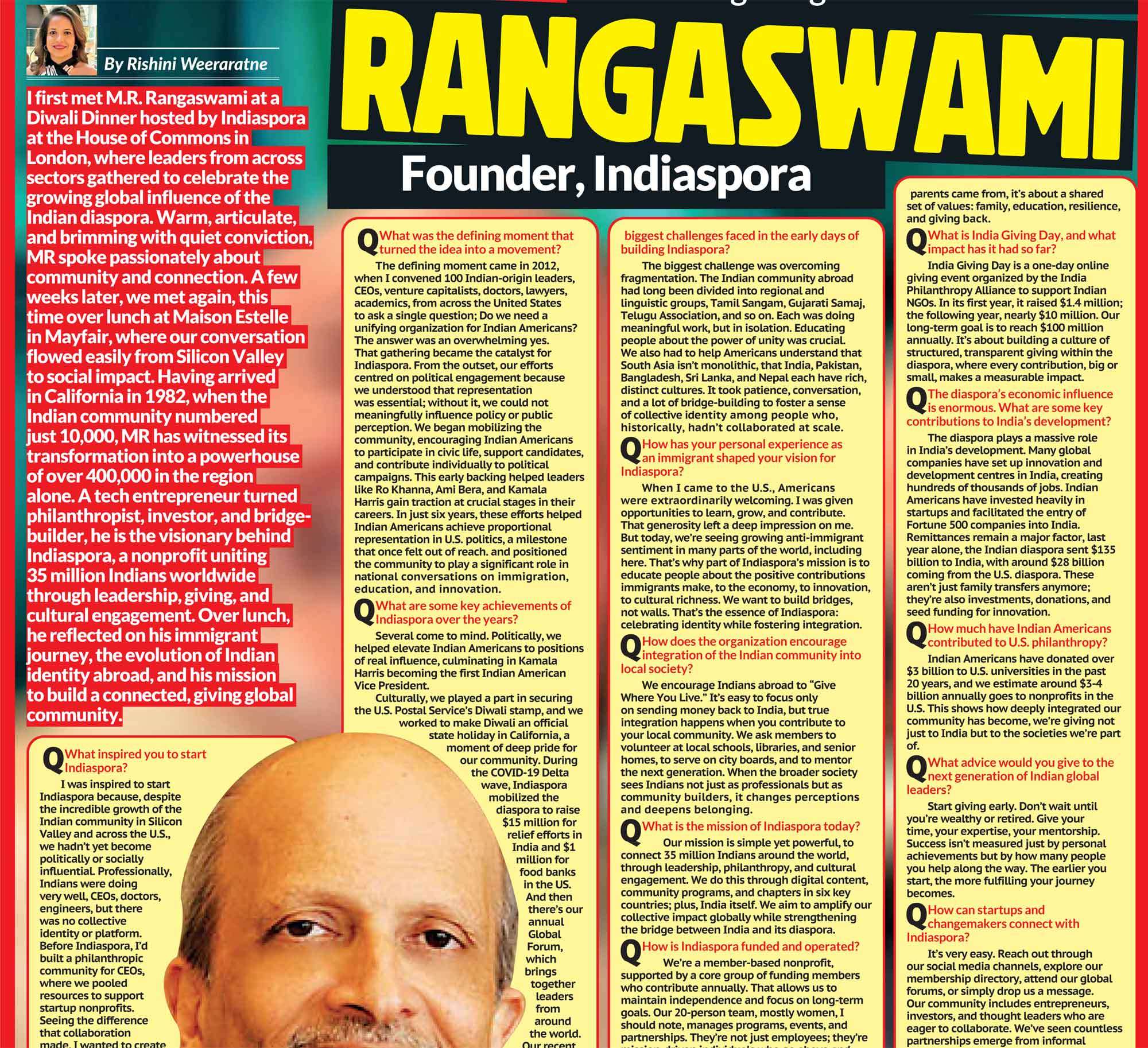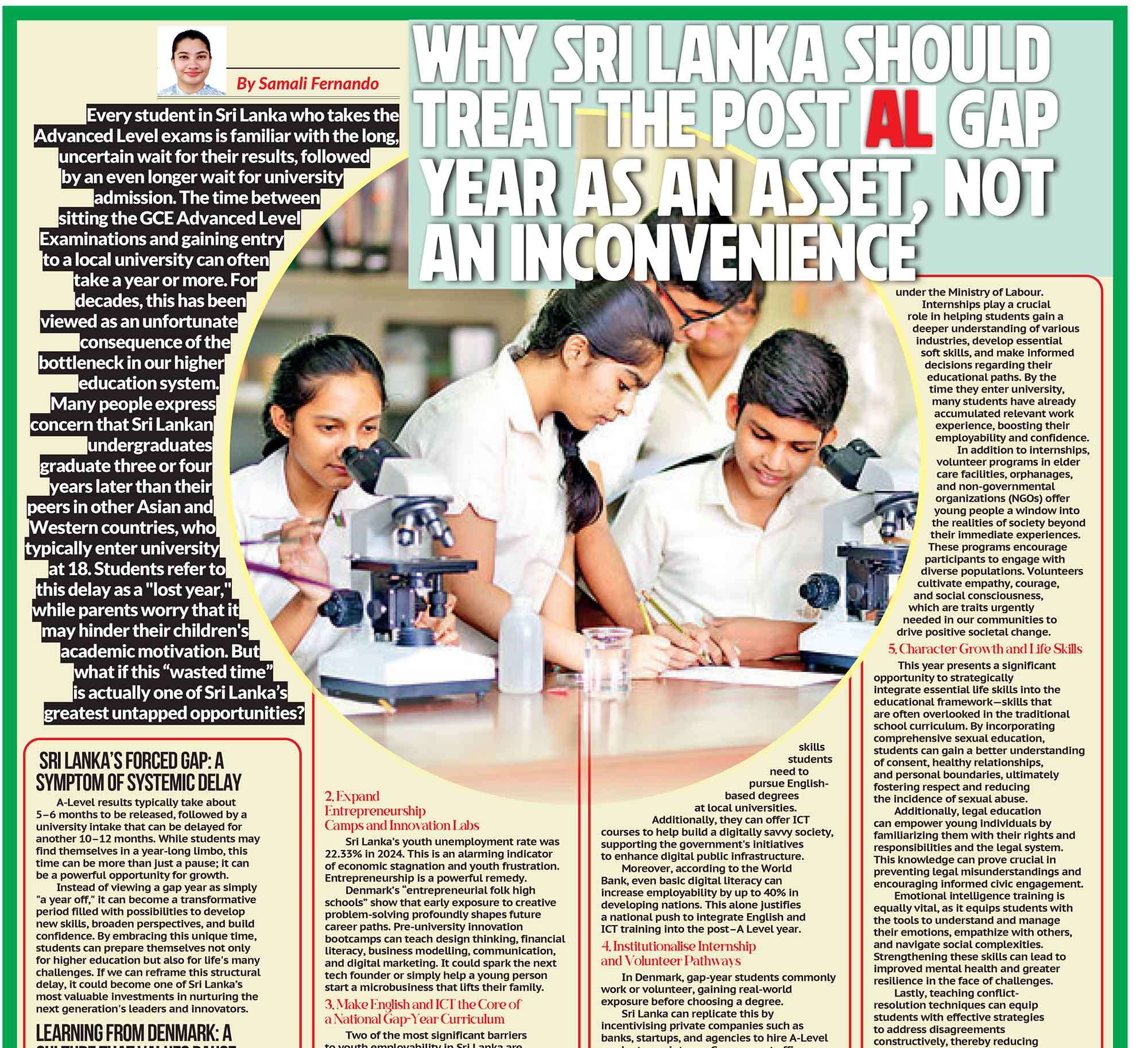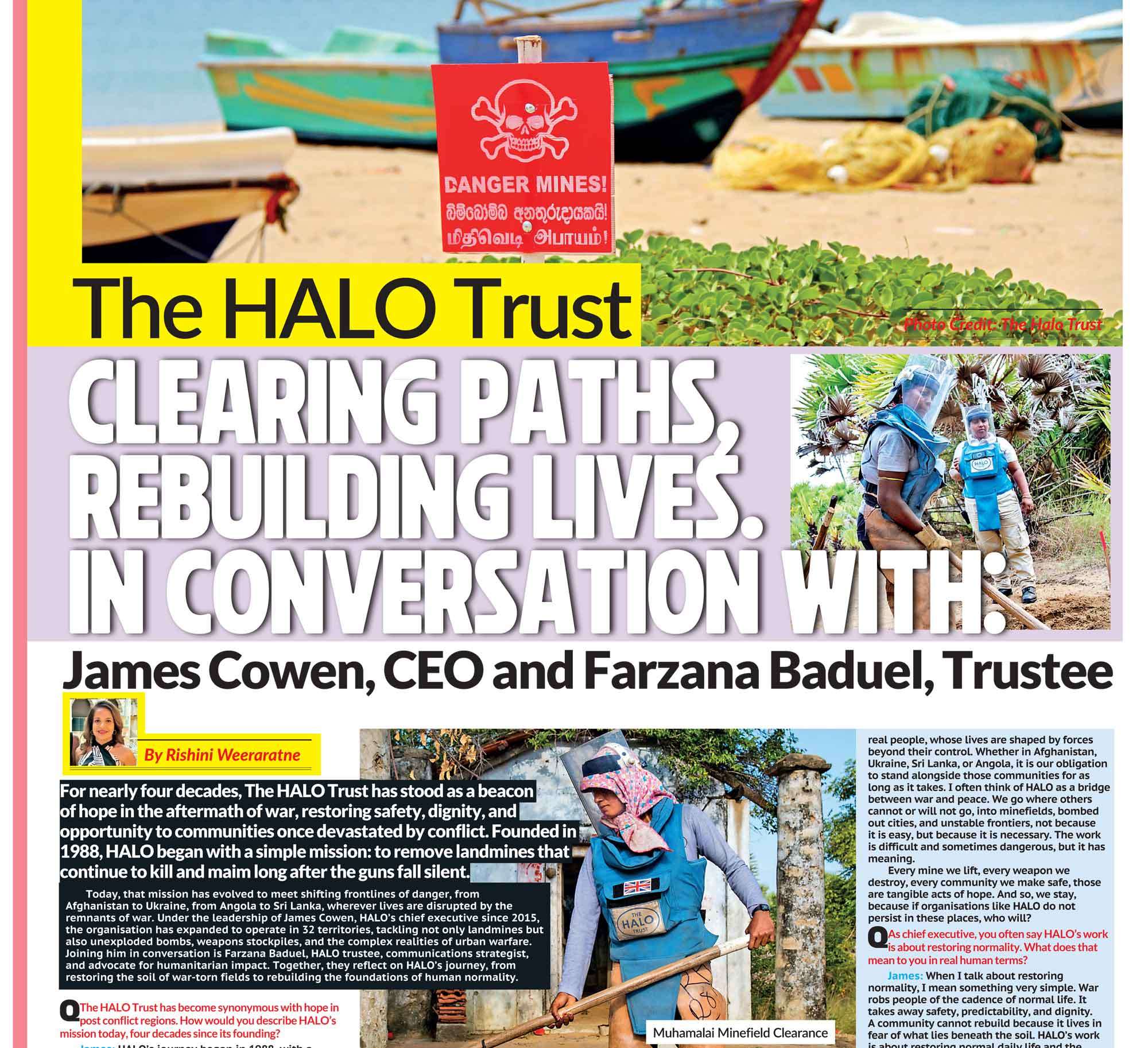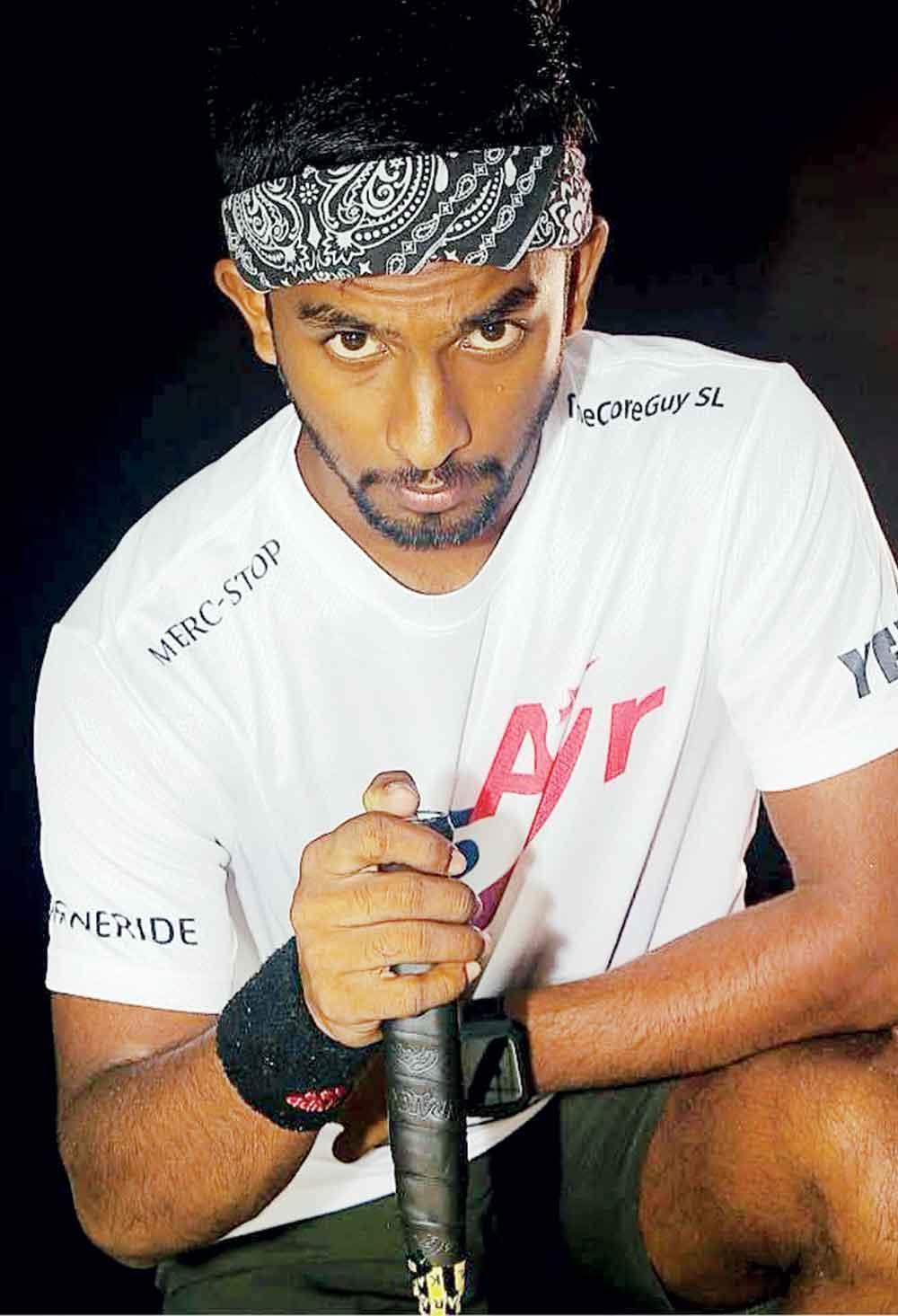
Meet Deshabandu Tuwin Herath, a 25-year-old national squash player who has made Sri Lanka proud in his recent Qatar Squash Championship by securing 3rd place. Tuwin, is an ambitious sportsman and is a certified fitness trainer, with a long history of personal achievements since school years. A former outstanding student of D.S. Senanayake College and to date holds the honor of being elected the Head Boy, Games Captain and the Best Sportsman of the year award in the same year.
At the age of 21 years, Tuwin was awarded the Deshabandu tittle after securing 6th position at the Asian Junior Teams Championships and for his contribution towards the society by taking care of the needs of 100 families during COVID. I am humbled to pen down a truly inspiring story of a boy, who has been a role model for children in school and is now determined to have the Sri Lankan flag flying high!
Today, in Raise The Bar - Athletes’ Spotlight, we will be talking to Deshabandu Tuwin Herath about his passion for sports and how he stays committed and consistent through challenges.
1 What’s your educational background? and in which ways has your education shaped you to become a better athlete?
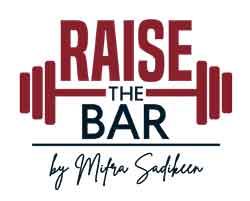 I recently completed my Bachelor’s degree in Business Information Systems and hold a Higher National Diploma (HND) in Cyber Security and Network Technology. Balancing academics alongside a professional sports career has taught me a lot about discipline, organization, and perseverance.
I recently completed my Bachelor’s degree in Business Information Systems and hold a Higher National Diploma (HND) in Cyber Security and Network Technology. Balancing academics alongside a professional sports career has taught me a lot about discipline, organization, and perseverance.
2 What has your journey into sports been like throughout your childhood?
I was actively involved in cricket growing up and played for several clubs. However, in 2021, I decided to fully pursue squash. During my school years, I had the rare honor of holding three major positions simultaneously; Best Sportsman of the Year, Head Prefect, and Games Captain, something no other student had achieved in the school’s history up to now.
3 How long have you been playing squash? And what made you pursue squash as a sport after leaving school?
I have been playing squash competitively for over a decade. After school, I chose to pursue squash because it constantly challenged me both mentally and physically. I realized it offered a unique platform to represent my country internationally while pushing my personal limits.
I have been playing squash competitively for over a decade. After school, I chose to pursue squash because it constantly challenged me both mentally and physically
4 Run us through your journey to becoming a national squash player?
It took years of commitment, consistent training, and guidance from experienced coaches like Major Maniam, Christopher, Yasmin Zarook, and Ritwik Bhattacharya. I trained intensively, focusing not just on technical skills but also on fitness, strategy, and mental strength. Competing regularly and learning from each match helped me rise to the national level.
5 Tell us about your fitness routine, how often do you train?
My fitness regime is rigorous. I train twice a day, covering both squash-specific skills and strength conditioning, burning around 1500 to 2000 calories daily. Nutrition, rest, and recovery are key components of my training plan to maintain peak performance.
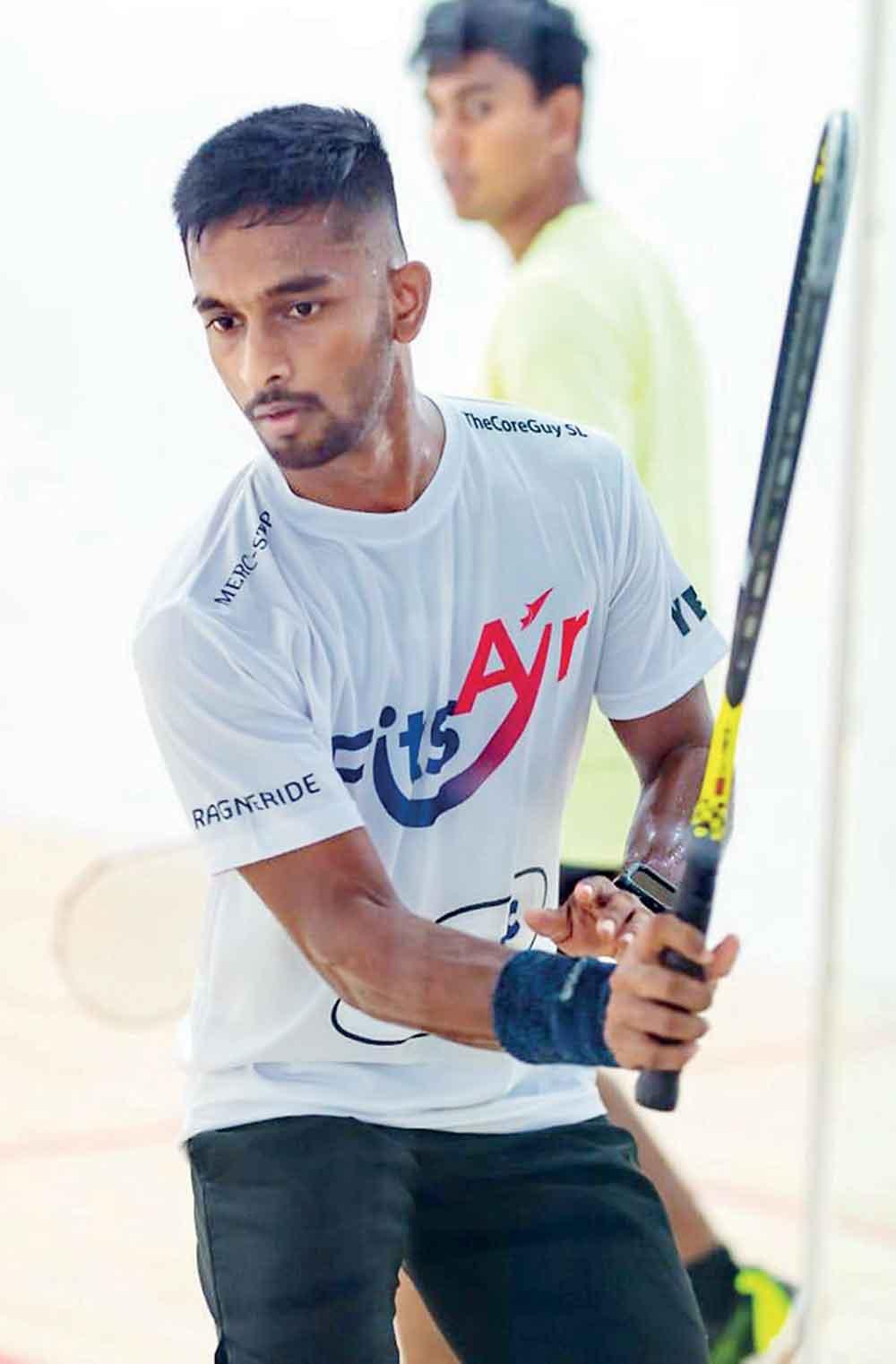
6 Talk us through your first experience at an international tournament?
My first international tournament was a truly eye-opening experience. Facing players from different countries made me realize the global standard and competitiveness of the sport. Although it was overwhelming at first, it sparked a deeper desire in me to keep improving and competing at higher levels.
7 What has been your greatest achievement in squash and your biggest achievement in the recent past?
One of my proudest achievements is reaching a world squash ranking of 319. Recently, in March 2025, I won a bronze medal at an international tournament in Qatar, defeating strong players from Pakistan and Oman. Each victory has been a stepping stone toward my larger goals.
8 What advice would you give young players who aspire to be professional athletes?
Stay consistent, stay patient, and don’t be afraid to ask for help. No one knows you need support unless you speak up. Build a strong foundation through hard work and keep learning every day
9 Let’s talk about resilience and the power of grit, how did you push through setbacks?
Setbacks are part of the journey. I learned to treat them as learning opportunities. Injuries, losses, and tough times pushed me to reframe my mindset, stay connected to my purpose, and keep grinding even when it wasn’t easy.
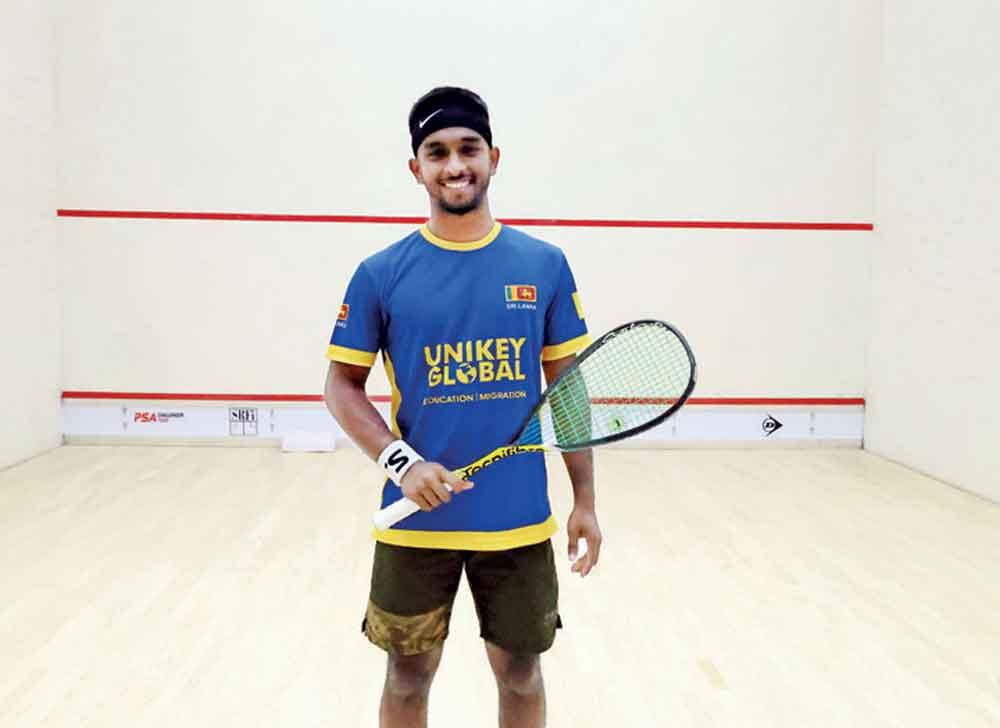
10 Does training with a purpose & tracking create progress?
Definitely. Purpose-driven training keeps an athlete focused, while tracking progress provides motivation and a clear view of areas that need improvement. It keeps you accountable and accelerates growth.
11 With minimal support, you have come a long way, how have you stayed consistent throughout these years and worked on advancing yourself?
Self-discipline and a deep belief in my goals have kept me going. I focused on daily progress, no matter how small. I sought guidance when needed, studied the game, and kept pushing myself even when circumstances weren’t ideal.
12 What advice would you give parents on helping their child reach their dreams?
Support your child without overwhelming them. Give them emotional backing, encouragement, and trust their journey. Help them find their passion rather than forcing it.
13 What do you think builds mental resilience in kids?
Allowing children to face challenges and setbacks without immediately rescuing them builds real resilience. Teaching them to problem-solve, persevere, and manage failure strengthens their mental toughness over time.
Setbacks are part of the journey. I learned to treat them as learning opportunities
14 Do you believe that training in general enhances emotional wellness in children?
Training teaches children emotional regulation, discipline, and focus. It offers a healthy outlet for stress, builds confidence, and creates a sense of belonging and achievement.
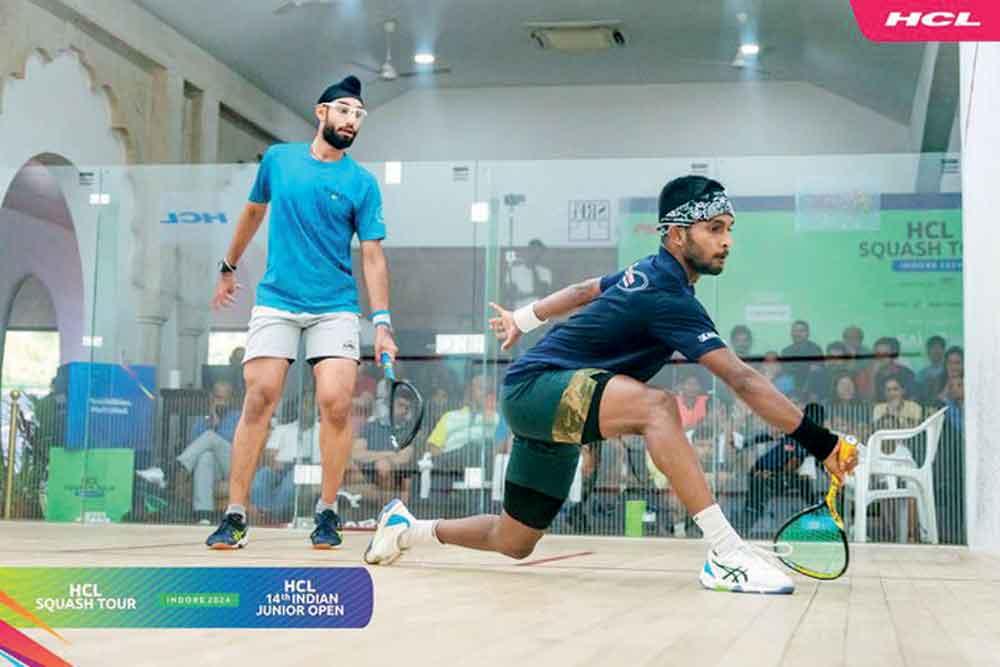
15 How early should parents encourage children to start a fitness routine?
Starting young, ideally once they begin school, is beneficial. Early fitness builds strong habits, improves motor skills, and lays the groundwork for a healthy lifestyle. The key is to make it enjoyable and supportive rather than being pressured.
Furthermore, he reiterates the importance of visualization. As a professional athlete competing in international platforms, visualizing both positive and negative circumstances ahead of tournaments has greatly helped him to be mentally resilient when facing challenges. When it comes to competitive sports, it’s often a strong mindset that allows the player to withstand pressure and adversity. As the saying goes, “Your body can withstand almost anything, it’s your mind that you have to convince”.

